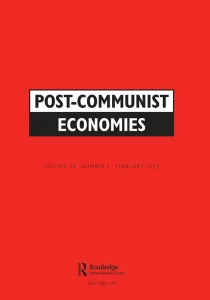Captured institutions and permeated business
– the longevity of Hungarian autocracy
The aim of the article is to show how modern autocracies can distort traditional institutions’ principles of functioning and form state–business relations for their own benefit. Our case study is Hungary, an autocratic system within a democratic union, where the economic conditions have worsened in the past couple of years. Based on documentary evidence, data and interviews, we demonstrate how the regime’s longevity depends on three main factors: alternative institutional arrangements, perceived individual economic welfare and support of business actors. The tools to handle foreign investors and control domestic business are different but creative and effective and can result in a long-term conciliation of different players and the stabilisation of the ruling power even in case of economic difficulties.
Keywords: Autocracies, institutions, FDI, crony capitalism, Hungary




